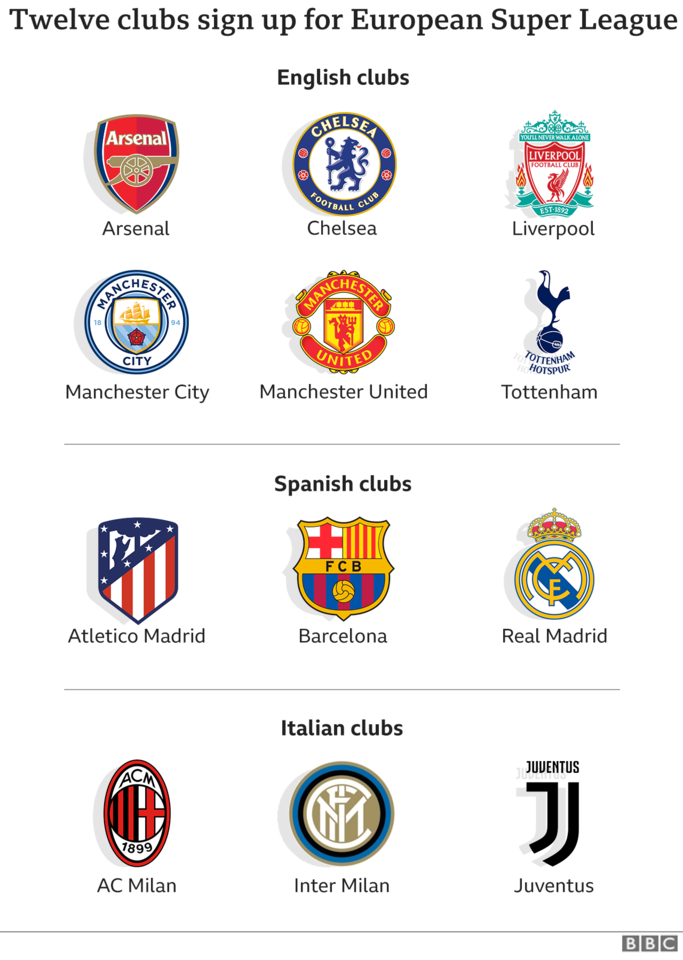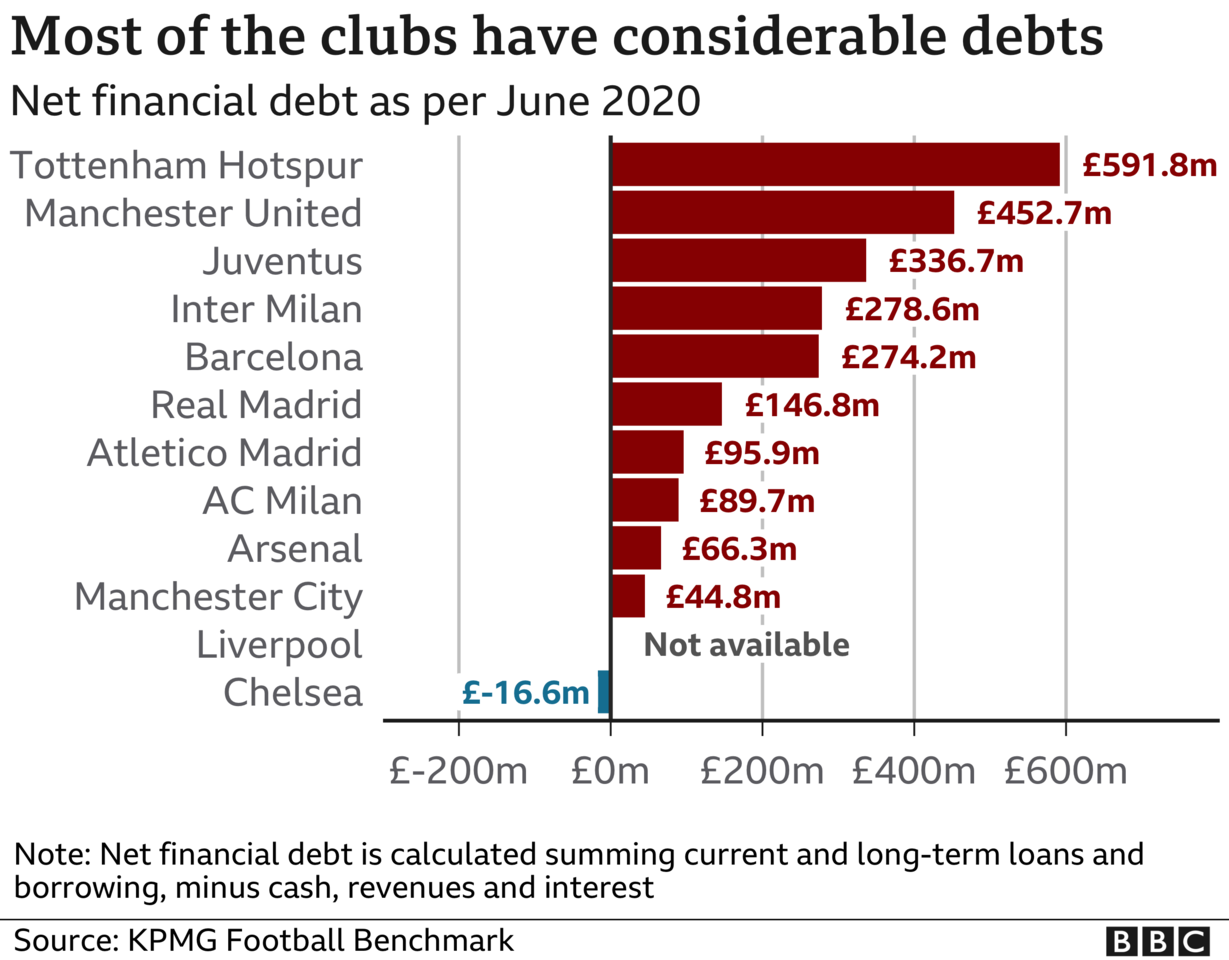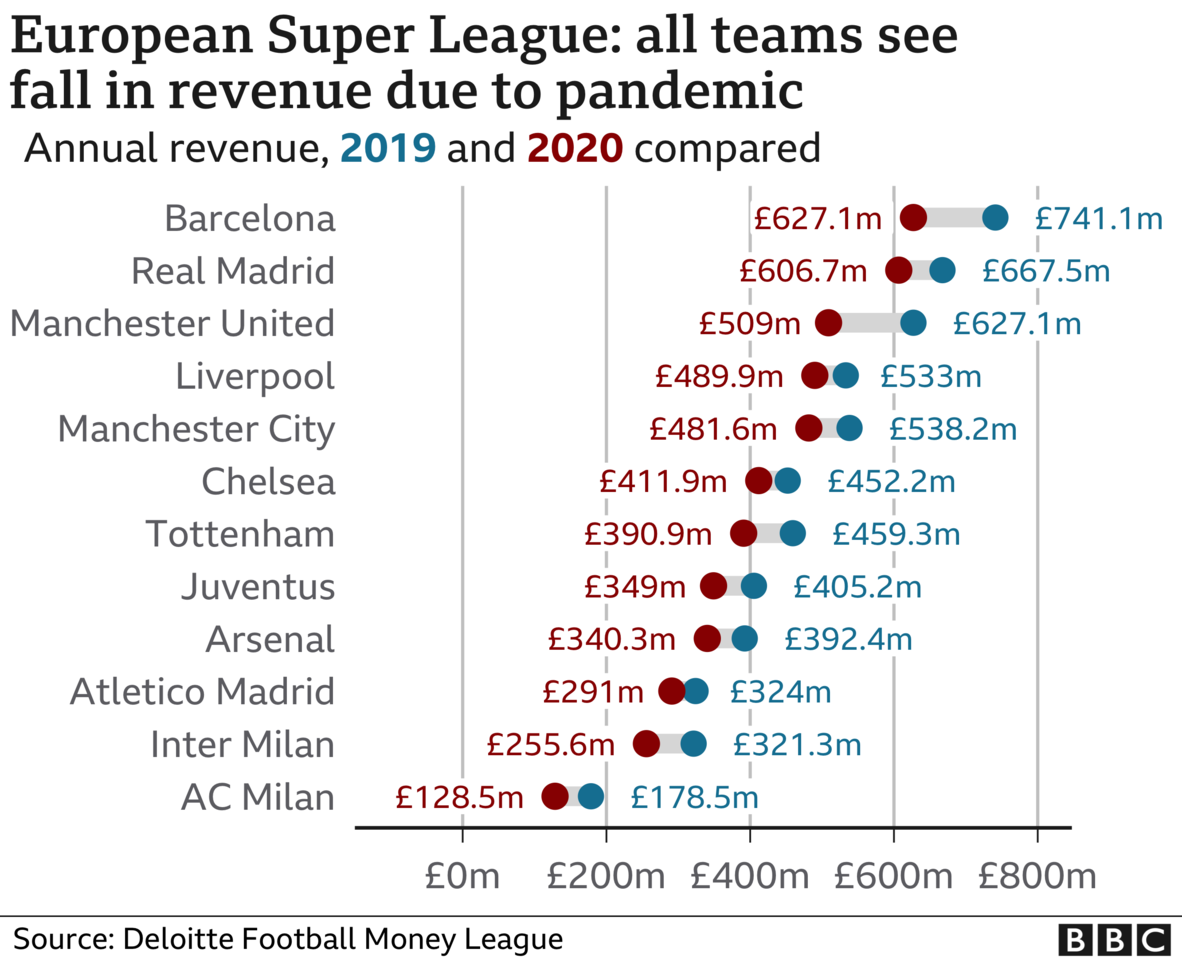Sports fans love a bit of jeopardy - a nail biting contest which can end in glory or defeat. But business owners generally hate all of that.
Owners and business managers of football clubs have a peculiar problem.
As one former chief executive of a Premier League club told me: "I won't know till the last day of the season if my budget for next year is going to be £170m or £70m."
That is not only almost impossible to manage, it has another very important consequence. Businesses with steady revenues are worth a lot more than ones with erratic earnings.
In business terms it's known as getting a higher "multiple" - volatile businesses are worth as little as five times average annual earnings, whereas steady ones are worth up to 20 times or more.
Giants v minnows
This is what the European Super League is all about - making the clubs involved worth more by eliminating the jeopardy of being relegated or missing out on Champions League qualification.

This is the moment many football team owners have been waiting for - particularly the American owners of Liverpool, Manchester United and Arsenal - who know for themselves how much more stable and therefore valuable are the earnings of American sports teams.
The backers of the Super League say that the existing Champions League was a poor product - too many meaningless one sided games between minnows and giants of European football before it got interesting.
They also argue that a more stable financial top to the football pyramid is needed to ensure the cascade or trickle down to the smaller clubs that they promise will increase as a result of this.
But many sports fans would argue the prospect of a romantic giant killing in Real Madrid's Bernabeau stadium or Old Trafford is an essential part of the game - while regular meetings between the great clubs normalise and make humdrum what was once an exotic and rare event.
The backers have told the BBC this is not another extreme form of negotiation to make Uefa cave to the big clubs' long-standing demands for more control of the world's most prestigious club event - "this is really happening, it's on, even if Uefa backs down".

If it does it will have far reaching implications for the existing leagues around Europe.
Finishing in the top four of the Premier League is the biggest prize in English football. The six teams joining the Super League have realised that six doesn't go into four - two miss out every year.
'Cynical'
Not any more. An insider at the Super League admitted that the plan will seriously dilute the value of the Premier League as a product - the race which is one of its key attractions will be meaningless.
We have been down this road before and the former Premier League chief executive suggested that the pandemic had provided a window of opportunity for a very radical proposal that would not have a chance of succeeding in normal times.

"There is a cynical opportunism to this," he said. "They realise that things are chaotic right now and that in many ways - anything goes."
But he added: "Football is about two groups of people. Players and fans. You upset them at your peril.
"If fans decide to boycott the matches, that will be a financial disaster, and if Fifa threatens to ban participating players from representing their country in the World Cup - they won't go for it."
If you like jeopardy, the stakes don't get much higher than this.















